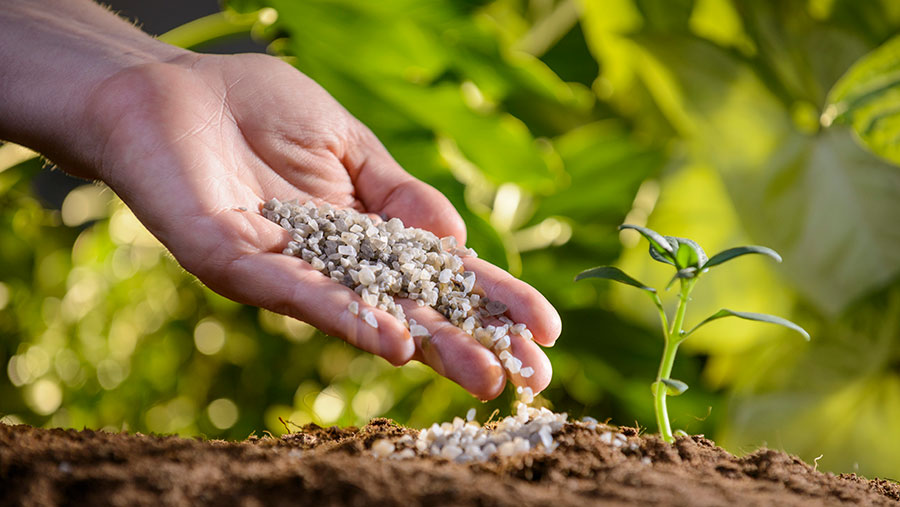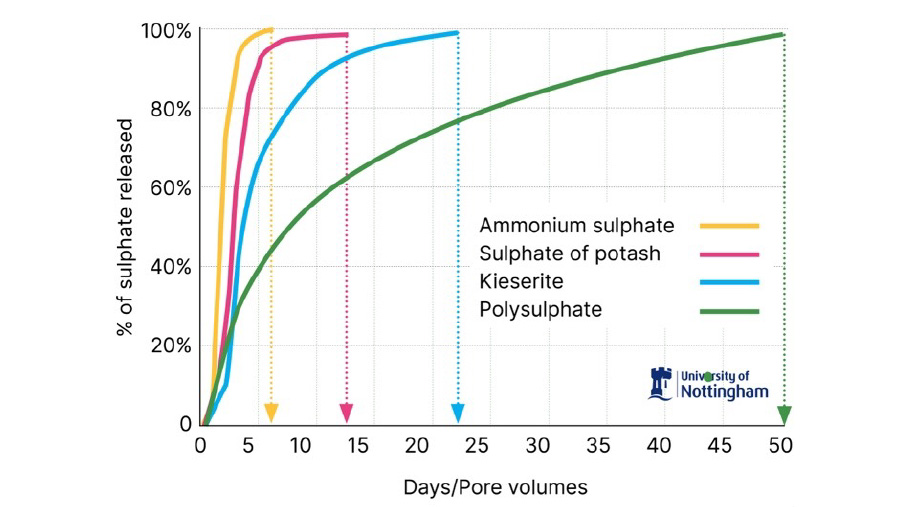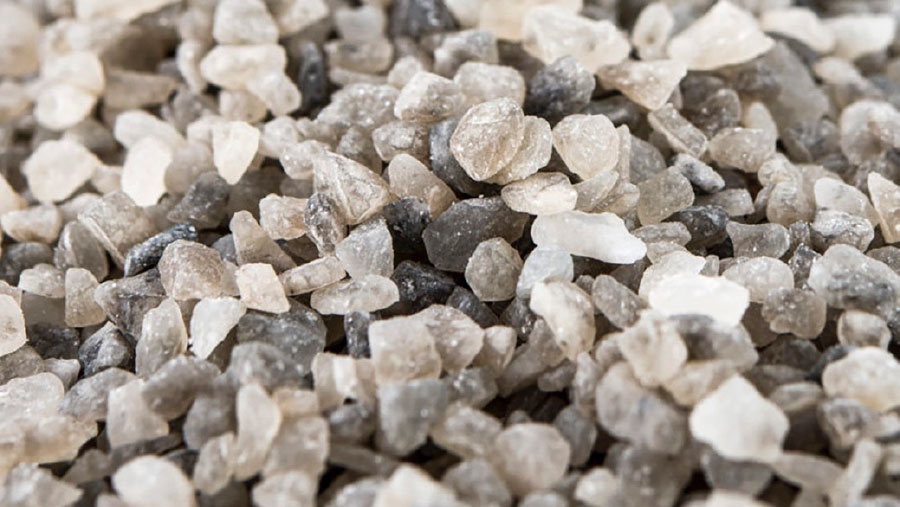Advertiser content
Why polysulphate is key to low-carbon fertiliser programmes
 © ICL UK & Ireland
© ICL UK & Ireland Polysulphate has a major role to play in improving the efficiency of fertiliser use in the UK and decarbonising food production in the future.
Low carbon fertiliser programmes are increasingly important across all areas of agriculture as growers strive to meet their sustainability obligations and the wider food supply chain starts to reward farmers for reduced carbon footprints of production.
Maximising carbon efficiency on-farm has many benefits including the building up of carbon credits that can be sold, used to achieve net zero status or become part of marketing arrangements that deliver higher returns for milk, grain and produce.
Efficient use of diesel and other energy sources is a key element of the carbon footprint of crop production, as are use of cover crops and appropriate soil management, but use of nitrogen fertilisers is one of the biggest factors.
Both the production and use of nitrogen fertilisers lead to the release of CO2, N2O and CH4, which are among the most important global GHGs, so anything that can make their use more efficient has a significant impact on a farm’s carbon footprint.
Sulphur is a key element in the production of all crops, promoting optimum plant health, high quality output and allowing plants to express their full genetic potential, but is also critical in ensuring maximum use of applied nitrogen is made.
Efficient sulphur applications actually improve the all important Nitrogen Utilisation Efficiency (NUE) of crops significantly, through facilitating nitrogen metabolism, with sulphur being a crucial component of plant protein and enzyme synthesis.
Polysulphate benefits
ICL Polysulphate is increasingly being seen as the best way of achieving this application efficiency, not just because it has a very high sulphur content (48% SO3, 14% K2O, 6% MgO and 17% CaO) but also because it has a unique ‘prolonged release’ action.
As plants can only take up so much sulphur at a time, this prolonged release enables roots to take up nutrients as and when they need it.
It also helps reduce potential losses of valuable nutrients into water and air, improving both the efficiency with which plants take these up and reducing possible environmental issues.
In fact, University of Nottingham trials have shown over 50% of the sulphur contained in Polysulphate is available in the first 12 days after application with the remainder released over the following 6 – 8 weeks.

But the other important factor with Polysulphate is that it is a non-nitrogen sulphur source.
Most commonly used sulphur fertilisers are based on ammonium sulphate (AS) commonly known as Nitrogen Sulphur (NS) products. So whenever, you want to achieve the desired sulphur application rate, you are also adding nitrogen to your crops.
Higher nitrogen use efficiency
In modern production, where optimising the efficiency of nitrogen applications, this is far from desirable. Furthermore, it does not allow the careful balancing of N and S to maximise NUE and stops you choosing to use the latest low carbon N sources.
Being able to apply just the right amount of Sulphur you need and then supplement this with a low carbon N source, including green ammonia products, makes the use of inorganic fertilisers as efficient as possible.
In addition, Polysulphate is UK produced, mined from under the North Sea by ICL with minimal processing, low transport miles and high energy efficiency making it the lowest carbon footprint fertiliser available with just 0.0029 per kg of CO2 e of product.

© ICL UK & Ireland
While conventional manufactured fertilisers are increasingly under the spotlight as major contributors to the carbon footprint of food production, ICL and Polysulphate are signposting a way forward for crop nutrition to play a major role in more sustainable future production.
Polysulphate’s significant productivity and environmental gains, including improving crop yield and quality, boosting the uptake of nitrogen by plants from both applied and organic sources and reducing loss of potentially harmful elements to water and the air, are hugely significant.
Polysulphate can significantly reduce the emissions produced by large scale food production and is totally complimentary to sustainable agriculture practices including regenerative and organic farming.
It has a major role to play in improving the efficiency of fertiliser use in the UK and decarbonising food production in the future.
Provided by
ICL are experts in crop nutrition, such as Controlled Release Fertilisers (CRF). We are also market leaders in phosphate, potash and Polysulphate® based fertilisers. We offer high quality products to help farmers increase productivity, in a more sustainable way.
